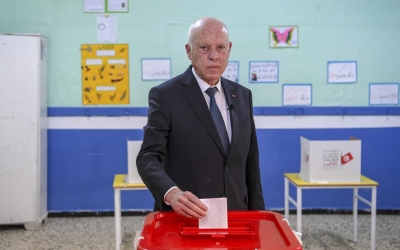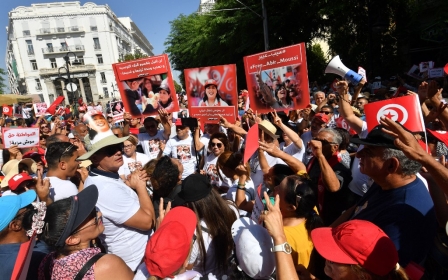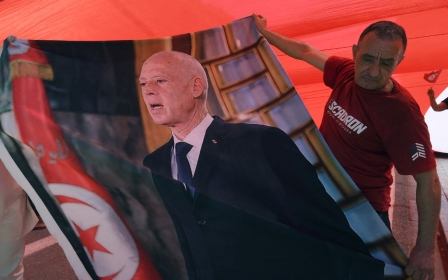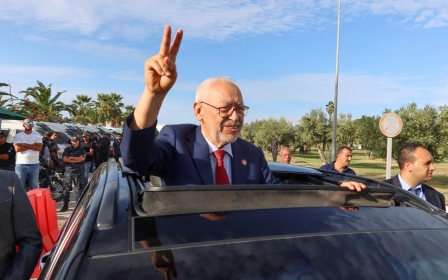Tunisia: Rapper K2Rhym jailed in absentia and banned from standing for presidency for life
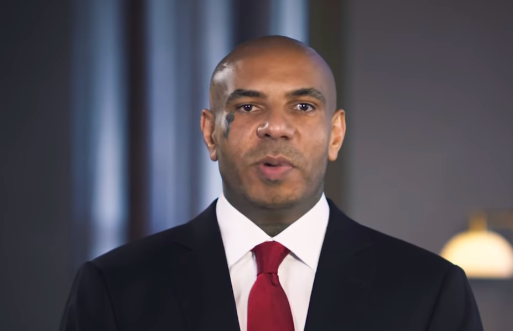
A Tunisian court sentenced rapper Karim Gharbi, widely known as K2Rhym, to four years in prison in absentia on Wednesday for allegedly purchasing voter signatures to secure his candidacy for the upcoming presidential elections.
Gharbi was also fined 5,000 dinars (around $1,600) by the court in the city of Jendouba and banned from voting and running for the presidency for life, a judicial spokesperson told AFP.
In late July, Gharbi announced his intention to run for the presidential election, set for 6 October, in a video in which he appeared in a suit rather than his usual flashy attire, creating a buzz in the country.
The rapper is the former son-in-law of deposed President Zine El Abidine Ben Ali. He lives abroad and is known for his charitable actions in Tunisia.
To be eligible to run in the election, candidates have been required to present a list of signatures from 10,000 registered voters, with at least 500 signatures from each constituency, or secure endorsements from lawmakers or local officials.
New MEE newsletter: Jerusalem Dispatch
Sign up to get the latest insights and analysis on Israel-Palestine, alongside Turkey Unpacked and other MEE newsletters
The Independent High Authority for Elections (Isie) also required candidates to have a clean criminal record.
On 5 August, as the deadline to submit applications drew closer, Gharbi took to social media to accuse the authorities of failing to hand him his criminal record, without providing any explanation, thereby preventing him from becoming a candidate.
“What does this mean? What are you afraid of? The ballot boxes?” Gharbi reacted, showing a document that appeared to be the letter he received as a response from the electoral body.
Crackdown on dissent
Tunisia’s electoral commission accepted only three candidates to run in the upcoming presidential election, while rejecting 17 other would-be contenders.
The incumbent, Kais Saied, will therefore face lawmakers Zouhair Maghzaoui, a supporter of the president, and Ayachi Zammel, who leads a little-known party.
The opposition accuses the commission of excluding serious competitors of Saied to ensure his re-election.
Gharbi has joined other aspiring presidential candidates - Abdel Latif Mekki, Nizar Chaari, Mourad Massoudi, Adel Dou and Lotfi Mraihi - recently sentenced to prison on similar charges.
Another candidate hampered in the presidential race is Abir Moussi, the chairwoman of the Free Destourian Party (PDL, close to Ben Ali), who has been in detention since October 2023.
A staunch critic of Saied, Moussi has been sentenced under decree-law 54, a piece of legislation enacted by the current president in 2022 to combat "false news" and accused by rights groups of being used to repress political dissent.
On Wednesday, the court additionally sentenced the president of the Jendouba municipality to one year in prison and a 1,000 dinar fine, while a colleague of Gharbi received a four-year prison term and a 5,000 dinar fine.
Four women working for Gharbi were previously sentenced to between two and four years in prison by the same court on 2 August, for having allegedly "provided money or gifts in kind" in exchange for voter signatures.
The series of arrests and court sentences have led to accusations by rights groups that President Saied - who in 2021 dissolved parliament, seized wide-ranging powers and began ruling by decree in a move the opposition has described as a coup - has intensified his crackdown on dissent.
"Instead of the vibrant debates of a pluralist political scene, I observed government repression, fuelling fear and dread about what’s to come," Amnesty International’s Secretary General Agnes Callamard said in July, as she visited the country.
"Many political opposition leaders and government critics are in arbitrary detention, presidential candidates face restrictions and prosecutions, many journalists and commentators have been sentenced to imprisonment, and civil society is under threat of further repression," she added.
Middle East Eye delivers independent and unrivalled coverage and analysis of the Middle East, North Africa and beyond. To learn more about republishing this content and the associated fees, please fill out this form. More about MEE can be found here.


